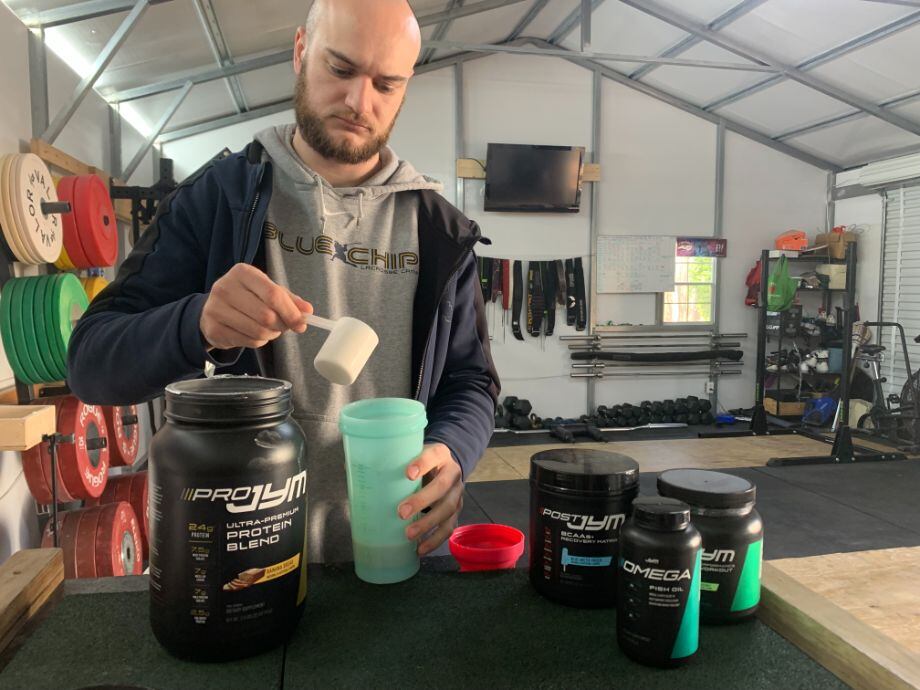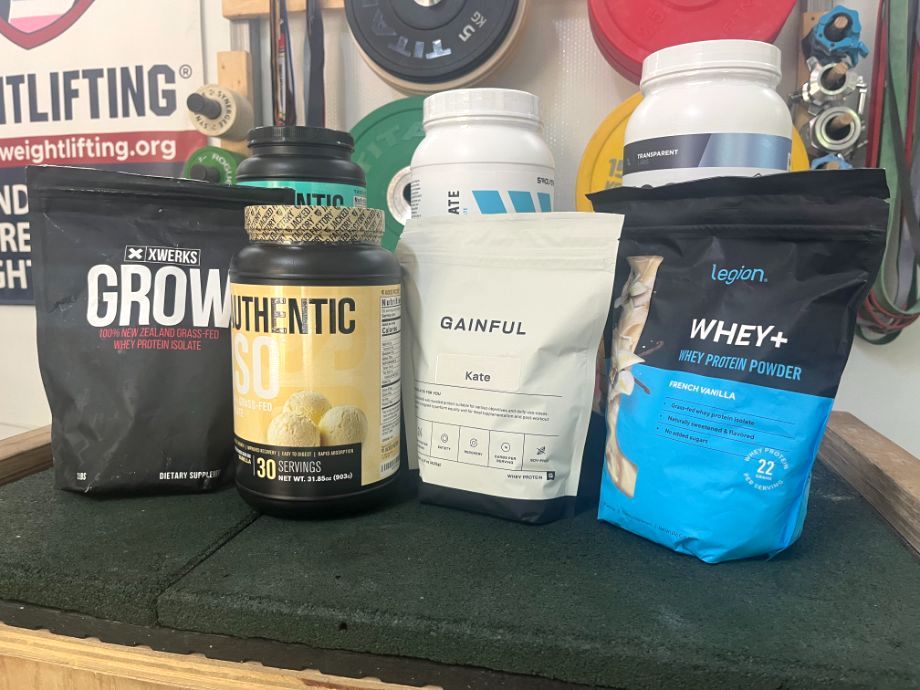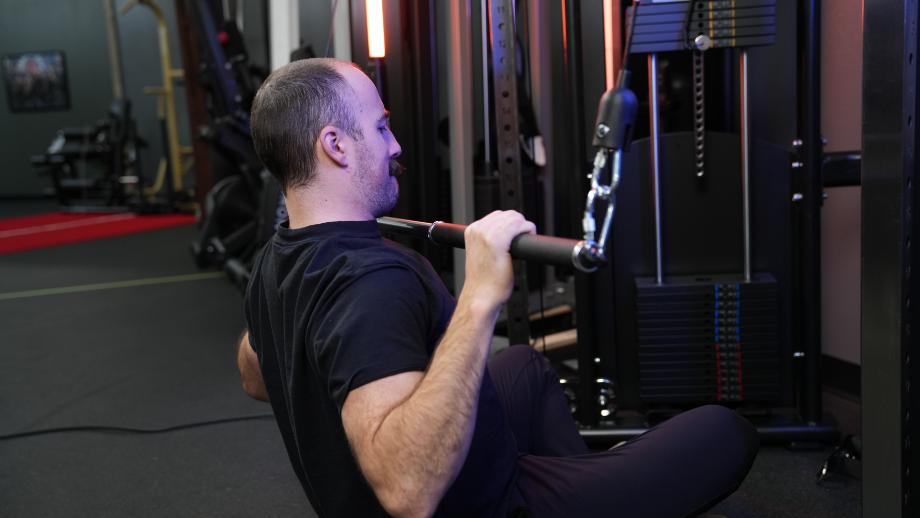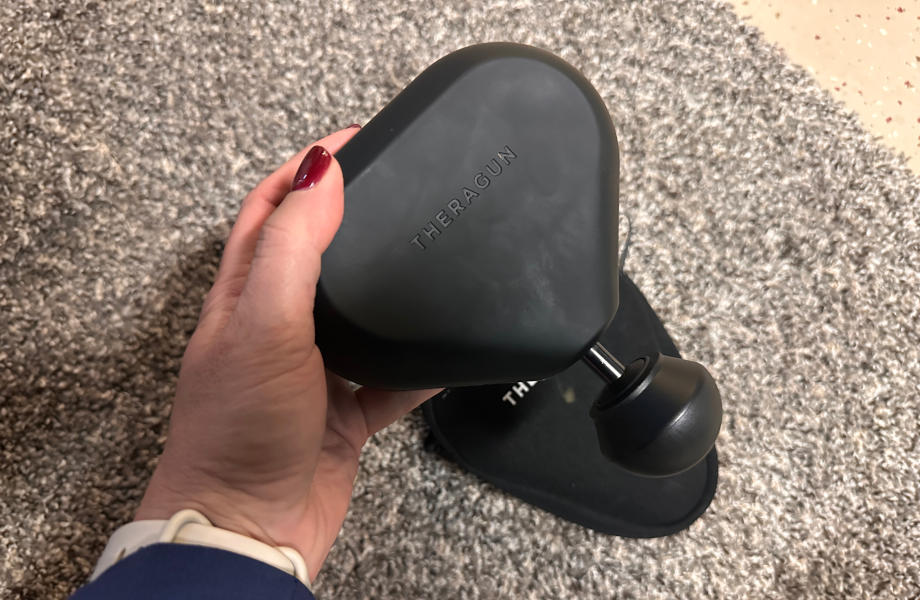Not all pre-workout products are created equal—in fact, far from it. Between that and the fact that pre-workouts are a dime a dozen these days, choosing one can quickly become an intense pursuit.
We don’t want you to waste your money on a supplement that doesn’t work, so in this guide we’re divulging exactly what to look for in a pre-workout. After reading, you’ll know which common pre-workout ingredients actually work, which ones are so-so, and which ones you should flat-out avoid.
Medical disclaimer: This article is intended for educational and informational purposes only. It is not intended as a substitute for medical advice. For health advice, contact a licensed healthcare provider.
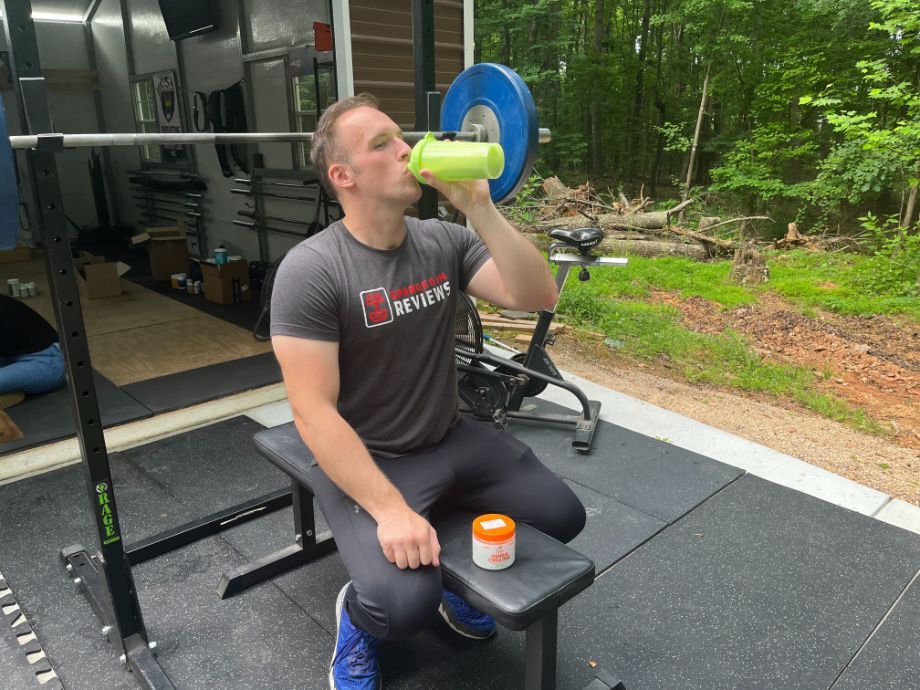
What Is Pre-Workout?
Pre-workout is a supplement that you consume before a workout. A pre-workout intends to accomplish at least one of the following things:
- Boost your energy levels
- Help you focus
- Give you a muscle pump
- Increase your exercise endurance
- Help you work harder in the gym
- Improve overall exercise performance for your session
- Decrease post-exercise muscle soreness
Ultimately, if a pre-workout is accomplishing these things on a regular basis, it should improve your overall athletic performance and help you reach longer-term goals like gaining muscle mass, fat loss, increasing muscle strength and muscular endurance, improving aerobic capacity, and more.
Best Pre-Workout Ingredients
These are the key ingredients often present in pre-workouts and what they do in the body.
Caffeine
Caffeine is what provides the energy in the vast majority of pre-workouts supplements. Those without caffeine are labeled “non-stim” pre-workouts, and they won’t give you the jolt of energy that a caffeine-laden supplement will. However, those who tend to get the jitters after caffeine ingestion will likely prefer a stim-free pre-workout.
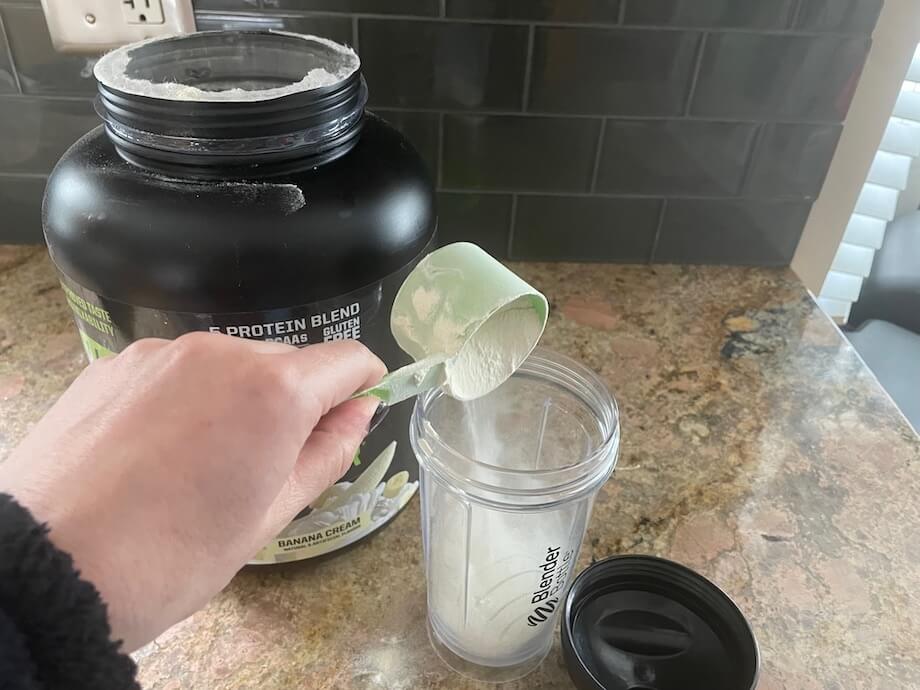
Citrulline
Citrulline is one of the most important ingredients in a pre-workout. It often appears on the ingredients list as L-citrulline or citrulline malate. The difference is that citrulline malate includes malic acid, which contains malate. Malate is an important compound in energy production systems within the body1, so some people think that citrulline malate is the superior form of citrulline in sports supplements. The science is still out on that, however.
Citrulline is a vasodilator2 and it’s largely responsible for the muscle pump that occurs during strength training after taking pre-workout. Vasodilators widen the blood vessels3, which simultaneously lowers blood pressure and increases blood flow, allowing more oxygen and nutrients to reach working muscles.
RELATED: Best Supplements for Muscle Growth
Beta-Alanine
Beta-alanine is the compound responsible for the tingling sensation associated with pre-workout consumption. This ingredient is much more than that pins-and-needles feeling (which is harmless and called paresthesia), though—beta-alanine is a non-essential amino acid that boosts the production of carnosine.
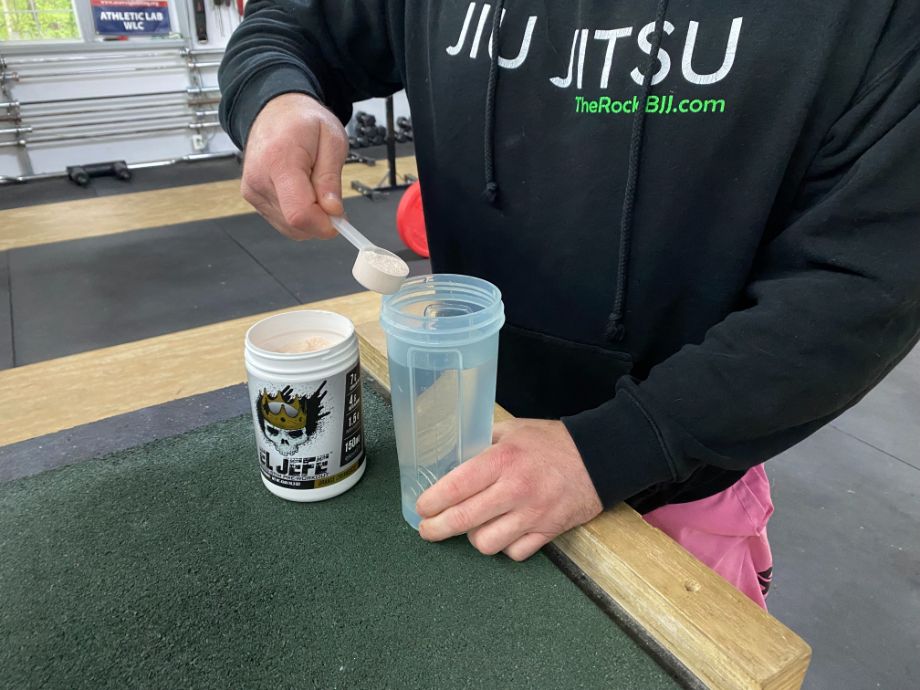
Carnosine is a buffer against lactic acid4, and it helps prevent a buildup of the acid during exercise, especially high-intensity exercise. In this way, beta-alanine is a powerful anti-fatigue agent.
Betaine Anhydrous
Research on betaine supports this ingredient as an endurance enhancer5, something that can help you extend the total duration of your training session or eke out more reps in the weight room. It might also increase muscle protein synthesis6.
RELATED: How to Build Stamina
Creatine
Creatine is the most clinically studied sports nutrition supplement. It’s been proven safe and efficacious for a number of fitness outcomes, including increases in lean muscle7, strength8, power9, and endurance10. Creatine also replenishes your body’s stores of ATP11, as it’s a primary component of the creatine phosphate energy system in the body.
Considering all these benefits, it’s interesting that it’s not a very common pre-workout ingredient. The reason for this is that creatine requires a loading phase for the most profound benefits, and the dose is quite large. This makes it hard for manufacturers to include a full dose of creatine in a pre-workout scoop.
When creatine is included in pre-workout, it’s usually present as creatine monohydrate or creatine HCl. Creatine phosphate is the third possible option. Usually (but not always), the dose in pre-workout is too small to be beneficial and you’re better off buying a creatine supplement separately. We’ve covered the best creatine supplements to help you choose.
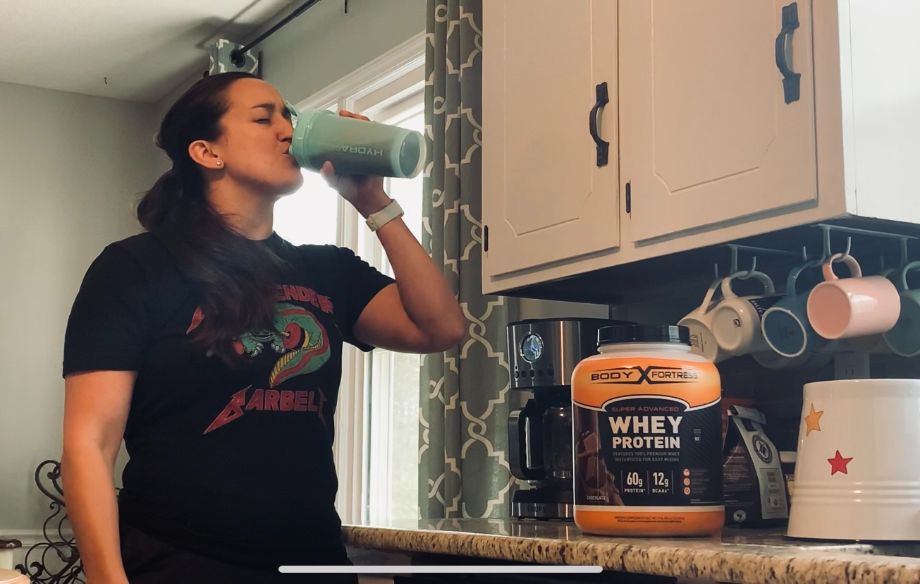
Branched-Chain Amino Acids (BCAAs)
There are three BCAAs: leucine, isoleucine, and valine.
These amino acids support muscle protein synthesis and increase glucose uptake into the muscles (which is important for long-duration exercise), but the verdict is still out on how helpful these amino acids are independently as supplements, according to a 2017 review in the Journal of International Society of Sports Nutrition12. To build muscle, you need all nine essential amino acids. BCAAs in pre-workout won’t hurt, and they might help, but I wouldn’t place them high on your priority list.
If you do want them, here are the best pre-workouts with BCAAs.
Arginine
L-arginine13 is an amino acid. Like carnosine, it’s essential for the production of nitric oxide, which dilates the blood vessels and promotes increased blood flow. In terms of fitness, it’s thought to have positive effects on aerobic metablism14, meaning it might increase your endurance. Unlike a lot of substances, L-arginine has both acute (short-term/immediate) and chronic (long-term) effects on performance15, so this is one that we really like to see in pre-workouts.
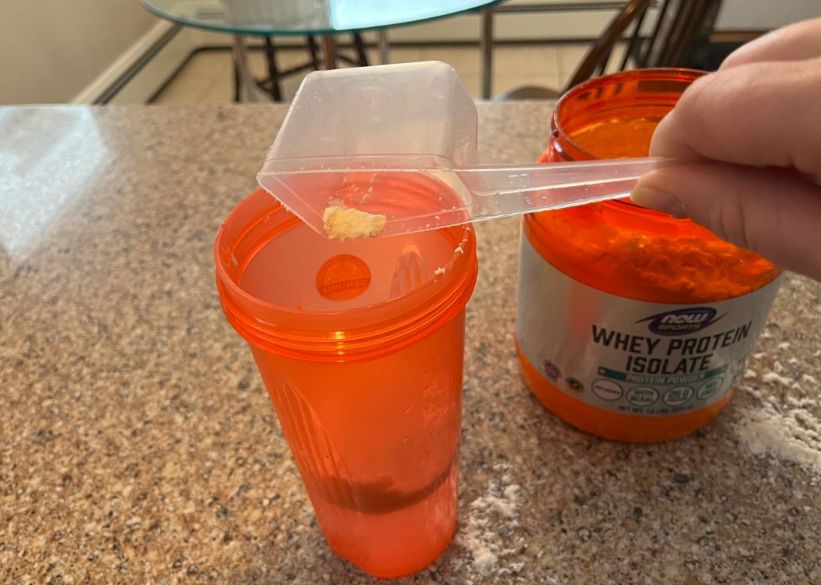
Tyrosine
This amino acid is included in pre-workouts for its impact on mental alertness and focus; it’s broadly characterized as a nootropic. Your body makes tyrosine endogenously from phenylalanine, a different amino acid, but supplementing with it is thought to improve mental performance in stressful situations16 and keep your mood stable. Research shows that tyrosine supplementation can improve working memory17 and cognitive flexibility18 (the ability to switch effectively between tasks), but the implications for fitness performance are unclear.
Some research shows that tyrosine fails to improve physical performance19, while other studies20 say the opposite. Tyrosine may work better in combination with other ingredients21, including theanine and caffeine.
For these reasons, I wouldn’t worry too much about finding a pre-workout with tyrosine, and instead think of it as an added bonus.
Taurine
Taurine has been called a “very essential” amino acid22 due to its abundance in almost all body tissues, but especially the tissues of the eyes, brain, spinal cord, heart, and muscle cells. Taurine holds a number of important roles in the body23, but with regard to fitness specifically, it is important for mitochondrial function, maintaining electrolyte balance in your cells (and thus hydration), supporting central nervous system function, and maintaining calcium balance in cells.
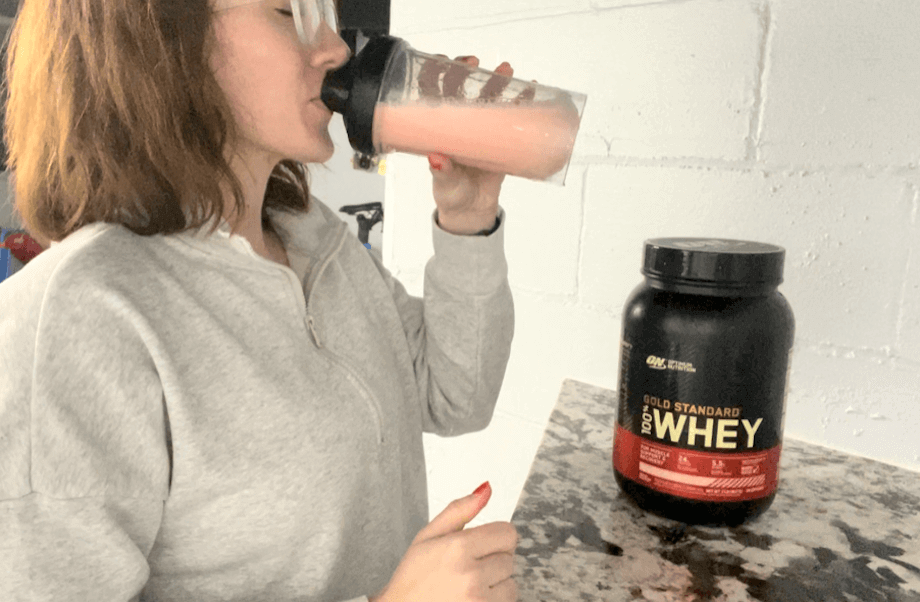
Research on the direct effects of taurine supplementation on fitness outcomes is mixed, with a 2021 review of studies24 finding that its ergogenic properties “remain controversial.” While some evidence is positive, overall, taurine is a strong “maybe.”
Theanine
L-theanine is an amino acid that has an effect on the nervous system and is thought to bolster the effects of caffeine25. It’s often included in pre-workout as an aid for calmness and focus. Some people believe that it reduces the jittery effect of caffeine.
Electrolytes
In pre-workout, the minerals sodium, potassium, magnesium, and calcium are sometimes included for hydration purposes and to support the sodium-potassium pump that plays a big role in muscle contraction.
I wouldn’t call these a necessary ingredient, since you can get them from drinking a sports drink (you could, perhaps, mix your pre-workout powder in something like Liquid I.V.), but they definitely don’t hurt a pre-workout formula. See the best electrolyte drinks and the best sports drinks to find your next mixer.
B Vitamins
B vitamins are sometimes included in pre-workout formulas due to their role in energy regulation and mood support26. Some B vitamins may act as nootropics, promoting a sense of focus and calm.
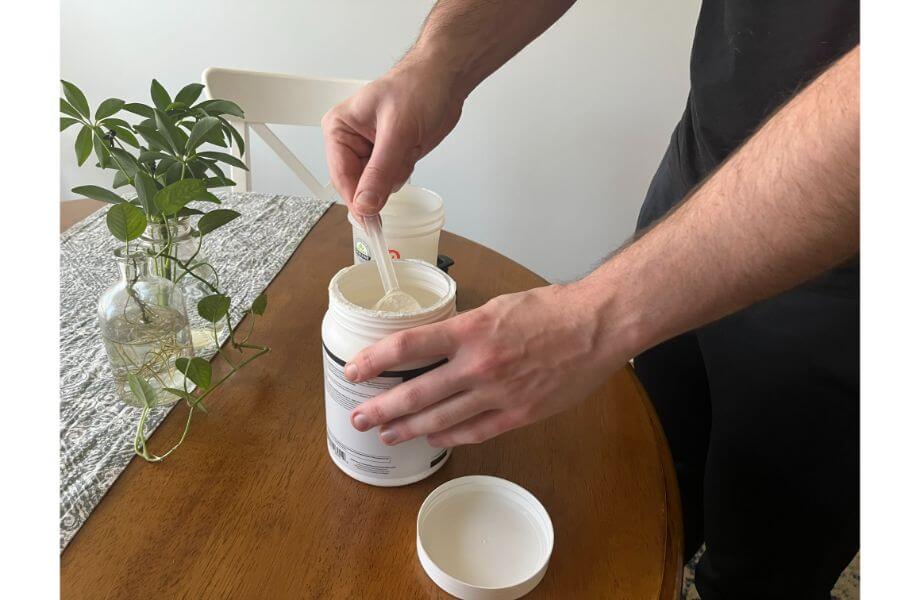
However, B vitamins are not likely to be a highly beneficial inclusion in multi-ingredient pre-workouts that contain other, more potent ingredients—particularly if you already get enough B vitamins daily.
RELATED: Best B12 Supplements
Nootropics
Nootropics are a class of compounds that promote focus and mental clarity. Popular nootropics in pre-workouts include caffeine, L-theanine, L-tyrosine, and B vitamins, all described above, but also ingredients like theobromine, choline, lion’s mane mushroom, rhodiola extract, ginkgo biloba, and panax ginseng.
Bioavailability Agents
In modern pre-workouts, bioavailability enhancers are becoming more and more popular. These ingredients help your body absorb more of the ingredients you consume when you take a pre-workout.
Two in particular have been proven effective to a degree: black pepper extracts27, including the patented version BioPerine, and ginseng extracts28, often as AstraGin, a patented compound that increases nutrient transporters in the gut for common pre-workout ingredients.
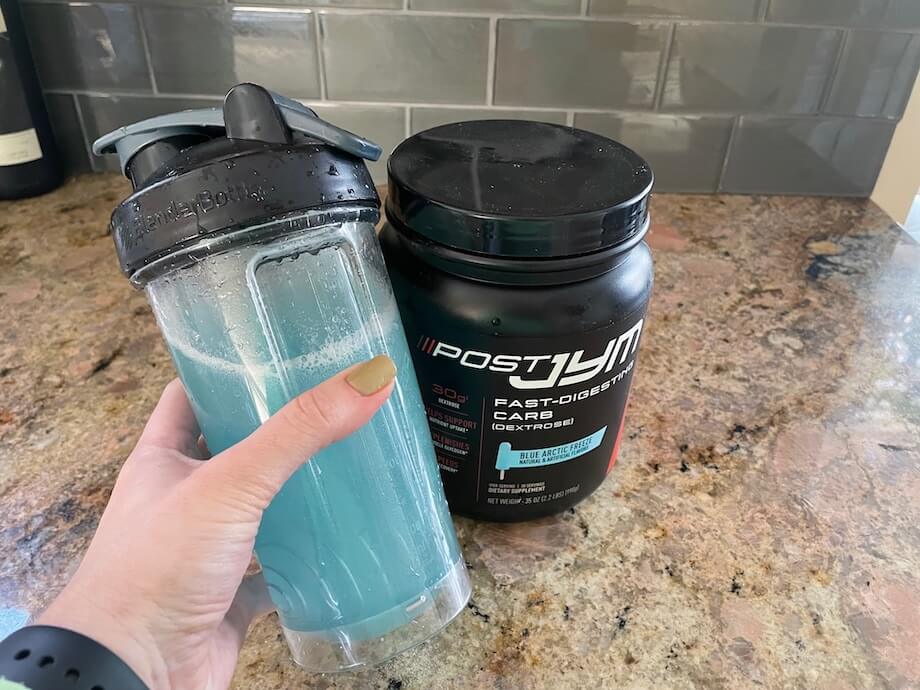
Other Nitric Oxide Boosters
You may come across other nitric oxide booster ingredients in pre-workouts, such as beetroot extract or pomegranate extract. These are thought to function in the same way as citrulline: they trigger reactions that cause the blood vessels to widen, resulting in increased blood flow and a muscle pump.
Doses of Ingredients In Pre-Workouts
I hate to break it to you, but just including the above ingredients in a pre-workout formula isn’t enough. They must be dosed correctly, too, or they’re a waste of money. Many, although not all, of the above ingredients have been proven to work at specific dosages, which are as follows.
- Caffeine: 100 to 400 milligrams, depending on tolerance
- Creatine: 3 to 5 grams
- Beta-alanine: 3 grams
- Citrulline: 6 to 8 grams
- Betaine anhydrous: 2.5 to 5 g
Pre-Workout Ingredients to Avoid
For most people, the important things to look out for are known allergens and ingredients that you already know give you unwanted side effects, such as artificial sweeteners that may cause GI distress. When it comes to common food additives, it’s really up to the individual to know what works for them and what doesn’t.
There are some universal things we can point to as watch-outs, though. For example, very high levels of stimulants, including caffeine, can be dangerous. Other stimulants to avoid include dendrobium, synephrine, DMAE, and rauwolfia vomitoria, according to registered dietitian Bob Iafelice, Ph.D.

Steer clear of pre-workouts that make questionable health claims. A pre-workout that says you can lose 20 pounds of body weight in two weeks is lying, and most likely dangerous. The same is true if a pre-workout claims it will make you pack on muscle in a short amount of time. Steroids and hormones do that, not pre-workouts.
Third-Party Testing and Label Transparency
Unfortunately, supplement companies have very few rules and regulations to abide by when it comes to manufacturing sports nutrition or health and wellness products. Supplements are currently regulated under some very outdated 1994 legislation called the Dietary Supplement Health and Education Act of 199429.
This act doesn’t stipulate much other than the fact that supplement manufacturers are prohibited from “marketing products that are adulterated or misbranded,” according to the FDA30. This means that the companies themselves are responsible for vetting their products for efficacy, safety, and label accuracy and ensuring they meet FDA standards.
But the FDA doesn’t actually have any control over whether or not a company abides by the DSHEA—until a product reaches shelves, at which point it could be too late if consumers have already started ingesting harmful substances.
Once a product is on store shelves or available for sale online, the FDA can take action against it if it’s deemed “adulterated or misbranded.” This includes products that do not declare allergens, potentially harmful ingredients, or proven harmful ingredients, as well as those that make claims about the efficacy of a product that simply aren’t true.
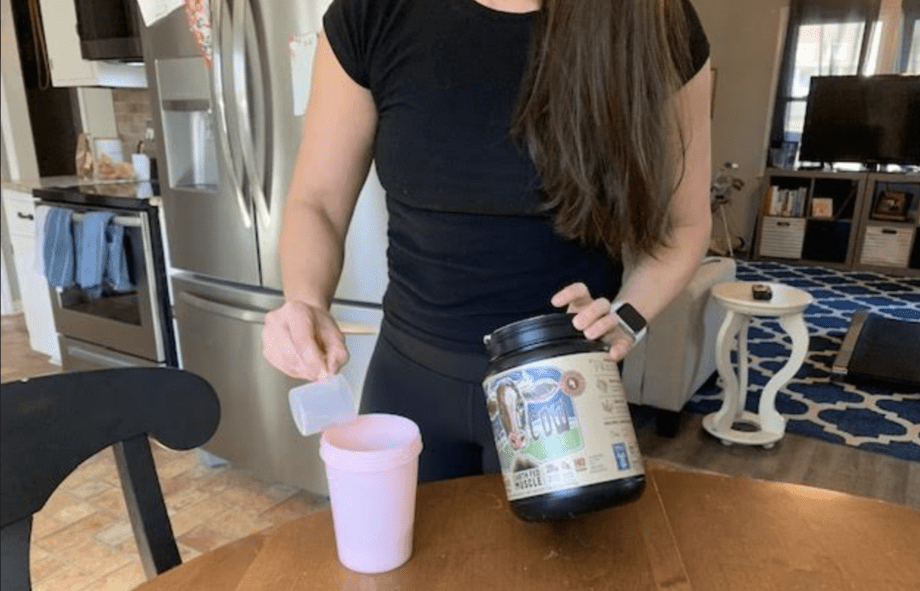
Third-party testing protects consumers where the FDA does not. It also protects athletes from consuming ingredients that are prohibited by the World Anti-Doping Agency.
We strongly recommend looking for a pre-workout that is verified in one of the following ways:
- National Sanitation Foundation (NSF) Certified: “Label claim review to certify that what’s on the label is in the bottle; toxicology review to certify product formulation; contaminant review to ensure the product contains no undeclared ingredients or unacceptable levels of contaminants.”
- NSF Certified for Sport: “Screens supplements for 280 substances banned by most major athletic organizations as well as undeclared ingredients including stimulants, narcotics, steroids, diuretics, beta-2-agonists, masking agents and other substances.”
- Banned Substance Control Group (BSCG) Certified Drug Free: “Provides protection against drugs on the World Anti-Doping Agency (WADA) Prohibited List as well as, prescription, over-the-counter (OTC), and illicit drugs not banned in sport.”
- BSCG Certified Quality: “Conducts testing to verify ingredient identity and label claims meet specifications as well as checking for heavy metals, microbiological agents, pesticides, and solvents.”
- Independent Certificates of Composition: A CoC is provided by an independent lab and shows the composition of ingredients in a supplement. For instance, this CoC on Transparent Labs’ BULK Pre-Workout lists the amounts of each ingredient detected in the powder.
- Independent Certificates of Analysis: CoAs are much more stringent than CoCs, as they test for pathogens like bacteria, allergens, and heavy metals. A good supplement manufacturer will get a CoA for every batch of every product it produces. For example, Transparent Labs lists the CoAs for its products, and you can see that Lot # 22020335 BULK Pre-Workout was tested for all of those things.
However, third-party testing isn’t the end-all, be-all. This testing can be quite costly for manufacturers, so some brands opt to forego it and focus on extreme label transparency. While it is, of course, impossible to know what’s in a powder without independent documentation, we do believe that there are good brands out there with full label transparency that consumers can trust.
If there is no third-party testing, make sure the product is free of proprietary blends as described above. Since there is no way to tell what is in a proprietary blend and in what amounts, a product that contains proprietary blends and isn’t third-party tested raises red flags.
The Best Pre-Workout Supplements
Although you just learned all about what to look for in a pre-workout, we’ve actually already done the shopping for you! We’ve tested more than 50 pre-workouts to find the best of the best.
Here’s our list of the best pre-workout supplements:
- Best Pre-Workout Overall: Transparent Labs BULK
- Best Pre-Workout for Men: Xwerks Ignite
- Best Natural Pre-Workout: Legion Athletics Pulse
- Best Pre-Workout for Weight Loss: Transparent Labs LEAN
- Best Pre-Workout for Beginners: Jacked Factory Nitrosurge
- Best Tasting Pre-Workout: Huge Supplements Pump Serum
- Best All-in-One Pre-Workout: Kaged Pre-Kaged
- Best Caffeine-Free Pre-Workout: Onnit Total Strength + Performance
- Best Pre-Workout for Women: Cira Pre-Game
- Best Pre-Workout for Focus: Pre JYM Pre-Workout
- Best Pre-Workout with Creatine: Gorilla Mode
- Best Pre-Workout for Running: MyProtein THE Pre-Workout
- Best Budget Pre-Workout: Cellucor C4
- Best Vegan Pre-Workout: Naked Nutrition Naked Energy
- Best Pre-Workout for a Pump: 4 Gauge
- Best Pre-Workout for Muscle Gain: Blackwolf
- Best Non-Stim Pre-Workout: Transparent Labs Stim-Free Pre-Workout
If you have specific needs or goals, like muscle growth, we’ve got you covered for that, too.
- Best Pre-Workout for Beginners
- Best Pre-Workout for Muscle Gain
- Best Pre-Workout for Men
- Best Pre-Workout for Women
- Best Stim-Free Pre-Workout
- Strongest Pre-Workout
- Best Natural Pre-Workout
- Best Pump Pre-Workout
What to Look For in a Pre-Workout: Final Thoughts
There’s a lot to consider when it comes to pre-workout supplements. Here’s a checklist you can run through next time you’re shopping. These questions are listed in order of importance.
- Does it contain any ingredients that, to you, are known allergens or irritants?
- Are there any proprietary blends that prevent you from knowing what exactly is in the formula and in what amounts?
- Is it third-party tested or is there full label transparency? (Especially important if the answer to No. 2 was yes).
- Does it contain, at a minimum, citrulline, beta-alanine, and caffeine (if you want it)?
- Does it contain any other scientifically proven ingredients that assist with performance, like creatine, betaine, arginine, or electrolytes?
- Does it contain these ingredients in the clinically supported doses?
- Does it contain any nootropics or bioavailability enhancers?
Answering these questions will help you whittle away the bad eggs to find a good pre-workout that works for you.
What to Look For in a Pre-Workout: FAQs
How do you know what is a good pre-workout?
When rating supplements like pre-workouts, we look at ingredient quality and label transparency. A good indication that a pre-workout is providing you exactly what’s listed in the nutrition facts is if the product has gone through third-party testing for quality and purity. This information should be available on the manufacturer’s site or on the label itself. Also consider the price per serving and how that compares to other options.
What’s the most important thing in pre-workout?
The most important thing in a pre-workout may depend on your goals and personal preferences. If you want a high-stim pre-workout for an energy boost, you might consider the caffeine levels to be the most important factor. If that’s you, aim for a pre-workout with at least 200 mg of caffeine. On the other hand, if you’re caffeine averse or train at night, a non-stim pre-workout is the better option.
Some, but not all, pre-workouts also contain ingredients like BCAAs and creatine. If these ingredients are important to your goals, you’ll want to look for products that have them. Pre-workouts are also low calorie but not necessarily low-sugar, so keep an eye out for those amounts if you’re watching your intake.
Last, not everyone enjoys the itch or “tingles” that can accompany pre-workout supplements. This sensation is caused by beta-alanine. If you find yourself in this camp, then look for a pre-workout without beta-alanine.
Is it enough to take pre-workout before the gym?
Taking pre-workout might help you perform better during your training session. However, it’s still a good idea to fuel up with some good ol’ fashioned calories, including carbohydrates, before you hit the gym.
Is pre-workout safe?
There are plenty of safe pre-workouts out there. The problem is, there are many unsafe ones, too. As you shop, it’s important to know which ingredients to look for and which ones to avoid.
Does pre-workout help you build muscle?
Yes, pre-workout can help you build muscle if it contains the right ingredients. Those ingredients include creatine, beta-alanine, betaine anhydrous, citrulline, and various amino acids.
These statements have not been evaluated by the Food and Drug Administration. This product is not intended to diagnose, treat, cure, or prevent any diseases.
References
- Bendahan D, Mattei JP, Ghattas B, et al. Citrulline/malate promotes aerobic energy production in human exercising muscle. British Journal of Sports Medicine 2002;36:282-289.
- Moon JR, Vogel RM, Falcone PH, et al. A comparison of citrulline and arginine for increasing exercise-induced vasodilation and blood flow. J Int Soc Sports Nutr. 2015;12(Suppl 1):P6. Published 2015 Sep 21. doi:10.1186/1550-2783-12-S1-P6
- Hariri L, Patel JB. Vasodilators. [Updated 2022 Aug 22]. In: StatPearls [Internet]. Treasure Island (FL): StatPearls Publishing; 2023 Jan-. Available from: https://www.ncbi.nlm.nih.gov/books/NBK554423/
- Hobson RM, Saunders B, Ball G, Harris RC, Sale C. Effects of β-alanine supplementation on exercise performance: a meta-analysis. Amino Acids. 2012;43(1):25-37. doi:10.1007/s00726-011-1200-z
- Arazi H, Aboutalebi S, Taati B, Cholewa JM, Candow DG. Effects of short-term betaine supplementation on muscle endurance and indices of endocrine function following acute high-intensity resistance exercise in young athletes. J Int Soc Sports Nutr. 2022;19(1):1-16. Published 2022 Mar 22. doi:10.1080/15502783.2022.2041988
- Apicella JM, Lee EC, Bailey BL, et al. Betaine supplementation enhances anabolic endocrine and Akt signaling in response to acute bouts of exercise. Eur J Appl Physiol. 2013;113(3):793-802. doi:10.1007/s00421-012-2492-8
- Wu SH, Chen KL, Hsu C, et al. Creatine Supplementation for Muscle Growth: A Scoping Review of Randomized Clinical Trials from 2012 to 2021. Nutrients. 2022;14(6):1255. Published 2022 Mar 16. doi:10.3390/nu14061255
- Mills S, Candow DG, Forbes SC, Neary JP, Ormsbee MJ, Antonio J. Effects of Creatine Supplementation during Resistance Training Sessions in Physically Active Young Adults. Nutrients. 2020;12(6):1880. Published 2020 Jun 24. doi:10.3390/nu12061880
- Izquierdo M, Ibañez J, González-Badillo JJ, Gorostiaga EM. Effects of creatine supplementation on muscle power, endurance, and sprint performance. Med Sci Sports Exerc. 2002;34(2):332-343. doi:10.1097/00005768-200202000-00023
- Bogdanis GC, Nevill ME, Aphamis G, et al. Effects of Oral Creatine Supplementation on Power Output during Repeated Treadmill Sprinting. Nutrients. 2022;14(6):1140. Published 2022 Mar 8. doi:10.3390/nu14061140
- Clark JF. Creatine and phosphocreatine: a review of their use in exercise and sport. J Athl Train. 1997;32(1):45-51.
- Wolfe RR. Branched-chain amino acids and muscle protein synthesis in humans: myth or reality?. J Int Soc Sports Nutr. 2017;14:30. Published 2017 Aug 22. doi:10.1186/s12970-017-0184-9
- McRae MP. Therapeutic Benefits of l-Arginine: An Umbrella Review of Meta-analyses. J Chiropr Med. 2016;15(3):184-189. doi:10.1016/j.jcm.2016.06.002
- Gambardella J, Fiordelisi A, Spigno L, et al. Effects of Chronic Supplementation of L-Arginine on Physical Fitness in Water Polo Players. Oxid Med Cell Longev. 2021;2021:6684568. Published 2021 Mar 15. doi:10.1155/2021/6684568
- Viribay A, Burgos J, Fernández-Landa J, Seco-Calvo J, Mielgo-Ayuso J. Effects of Arginine Supplementation on Athletic Performance Based on Energy Metabolism: A Systematic Review and Meta-Analysis. Nutrients. 2020;12(5):1300. Published 2020 May 2. doi:10.3390/nu12051300
- Bloemendaal M, Froböse MI, Wegman J, et al. Neuro-Cognitive Effects of Acute Tyrosine Administration on Reactive and Proactive Response Inhibition in Healthy Older Adults. eNeuro. 2018;5(2):ENEURO.0035-17.2018. Published 2018 Apr 30. doi:10.1523/ENEURO.0035-17.2018
- Colzato LS, Jongkees BJ, Sellaro R, Hommel B. Working memory reloaded: tyrosine repletes updating in the N-back task. Front Behav Neurosci. 2013;7:200. Published 2013 Dec 16. doi:10.3389/fnbeh.2013.00200
- Jongkees BJ, Hommel B, Kühn S, Colzato LS. Effect of tyrosine supplementation on clinical and healthy populations under stress or cognitive demands–A review. J Psychiatr Res. 2015;70:50-57. doi:10.1016/j.jpsychires.2015.08.014
- Coull N, Chrismas B, Watson P, Horsfall R, Taylor L. Tyrosine Ingestion and Its Effects on Cognitive and Physical Performance in the Heat. Med Sci Sports Exerc. 2016;48(2):277-286. doi:10.1249/MSS.0000000000000757
- Tumilty L, Davison G, Beckmann M, Thatcher R. Oral tyrosine supplementation improves exercise capacity in the heat. Eur J Appl Physiol. 2011;111(12):2941-2950. doi:10.1007/s00421-011-1921-4
- Zaragoza J, Tinsley G, Urbina S, et al. Effects of acute caffeine, theanine and tyrosine supplementation on mental and physical performance in athletes. J Int Soc Sports Nutr. 2019;16(1):56. Published 2019 Nov 26. doi:10.1186/s12970-019-0326-3
- Ripps H, Shen W. Review: taurine: a “very essential” amino acid. Mol Vis. 2012;18:2673-2686.
- Wu G. Important roles of dietary taurine, creatine, carnosine, anserine and 4-hydroxyproline in human nutrition and health. Amino Acids. 2020;52(3):329-360. doi:10.1007/s00726-020-02823-6
- Kurtz JA, VanDusseldorp TA, Doyle JA, Otis JS. Taurine in sports and exercise. J Int Soc Sports Nutr. 2021;18(1):39. Published 2021 May 26. doi:10.1186/s12970-021-00438-0
- Owen GN, Parnell H, De Bruin EA, Rycroft JA. The combined effects of L-theanine and caffeine on cognitive performance and mood. Nutr Neurosci. 2008;11(4):193-198. doi:10.1179/147683008X301513
- Kennedy DO. B Vitamins and the Brain: Mechanisms, Dose and Efficacy—A Review. Nutrients. 2016; 8(2):68. https://doi.org/10.3390/nu8020068
- Kesarwani K, Gupta R, Mukerjee A. Bioavailability enhancers of herbal origin: an overview. Asian Pac J Trop Biomed. 2013;3(4):253-266. doi:10.1016/S2221-1691(13)60060-X
- Murbach TS, Glávits R, Endres JR, et al. Toxicological Evaluation of a Mixture of Astragalus membranaceus and Panax notoginseng Root Extracts (InnoSlim®). J Toxicol. 2019;2019:5723851. Published 2019 Jul 1. doi:10.1155/2019/5723851
- U.S. Department of Health and Human Services. Dietary Supplement Health and Education Act of 1994, Public Law 103-417, 103rd Congress. Office of Dietary Supplements.
- U.S. Food and Drug Administration. Dietary Supplements.


